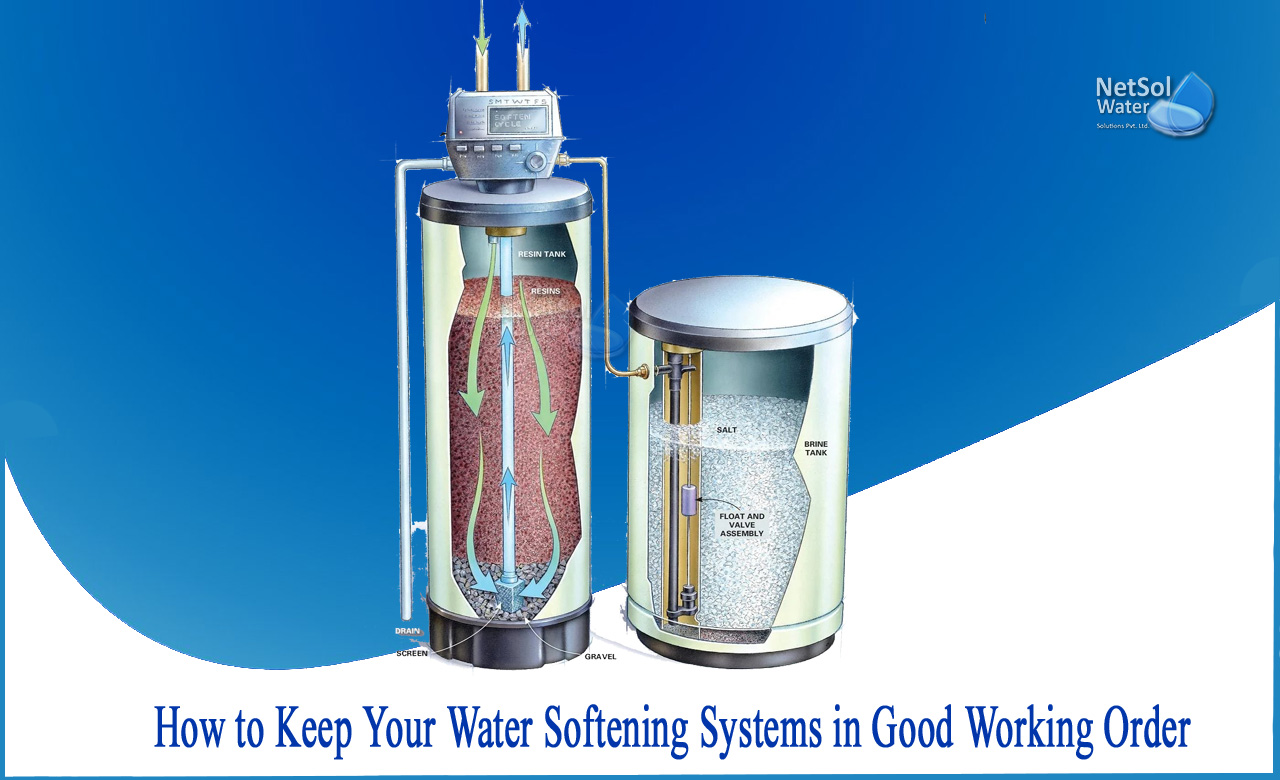How to keep your Water Softening Systems in good working order?
'Hard' water includes high quantities of calcium and magnesium, which cause lime scale development and interfere with soap's cleaning capabilities.
A water softening system is an essential household equipment in certain geographical areas. Modern water softeners can survive for years with little care, but annual inspections and cleaning can extend their life.
1: Upkeep of the brine tank
a). At least once a month, check the salt levels
Salt is an important component of the water softening process because it regenerates the resin beads, preparing them for further softening. The optimal salt level should be specified in the softener handbook.
Fill the tank at least halfway with salt and maintain it at least 3 inches (7.5 cm) above the water level. High salt levels (within 4 in/15 cm of the tank top) may boost efficiency; however, if you detect old salt sticking to the edges, reduce this to a lower level.
If you use block salt, it may be advisable to have a technician boost the water level to thoroughly submerge the block.
b). Determine the type of salt to use
The instructions for your water softener will inform you if it uses granular, tablet, or block salt. Because it dissolves the most easily, granular salt is the most commonly used.If possible, get it in pellet form, as regular salt crystals can quickly block the tank. There are also several salt grades to pick from:
1: Rock salt (coarse salt) is less expensive but includes more impurities, which reduces efficiency, necessitating more regular cleaning.
2: Solar salt is significantly purer than rock salt.
3: Evaporated salt is the highest-quality alternative, but it is also the costliest.
c). Break down salt bridges
Salt can solidify and form a "bridge" in the brine tank. This keeps the loose salt on top from interacting with the water below, preventing the softener from operating.Push a long broom handle around the tank's centre many times, all the way to the bottom, to break up any solid layers that have developed.
1: Pouring hot water on the bridge makes it more brittle.
2: If you experience recurring bridging issues, use less salt and allow the salt level drop between refills. Cleaning the brine tank should also be beneficial.
d). Dissolve the mush
The salt can also accumulate in a mushy clump at the bottom of the tank, forcing the water to rise around it rather than mix in.If it creates a huge pile, you can break it up using a broom handle. Scoop up the mush and dissolve it in hot water before pouring it back into the tank.
2: Cleaning the Tank
a). Plan the cleaning
Modern water softeners may run 5–10 years without being cleaned. Clean them only if your water has become hard and the basic maintenance hasn't resolved the issue within a couple of days. A yearly cleaning is recommended for older devices (particularly electric ones).
b). Fill the tank with water
To turn off the water supply, use the bypass valve. Siphon or drain all of the water out of the tank, then dump out the salt and discard it.
1: Keep wastewater away from your garden since salt destroys plants.
2: If necessary, dissolve salt blocks or bridges in hot water.
c). Remove the brine grid from the tank's foundation
Some versions have a mesh platform at the brine tank's base. Set this aside before you begin cleaning.
d). Using soapy water, scrub
Mix one or two gallons (4–8 litres) of water with a large amount of dish soap. Pour it into the tank and use a long-handled brush to clean the whole interior.
e). Rinse and restock
Thoroughly rinse away the bleach. Replace any grids that were in the tank. Fill the tank with water and salt as usual. Allow at least a couple of hours before replenishing the tank to allow the salt to dissolve.
If you want to know more about our range of effective Water Softeners, then you are at the right place!
You can have an expert solution upon contacting Netsol Water, a leading manufacturer of Industrial and Commercial Water Treatment plants and Wastewater treatment plants, among other services. Our treatment systems are very effective at removing all types of chemical, physical, and biological pollutants.
Netsol Water is Greater Noida-based leading water & wastewater treatment plant manufacturer. We are industry's most demanding company based on client review and work quality. We are known as best commercial RO plant manufacturers, industrial RO plant manufacturer, sewage treatment plant manufacturer, Water Softener Plant Manufacturers and effluent treatment plant manufacturers. Apart from this 24x7 customer support is our USP. Call on +91-9650608473, or write us at enquiry@netsolwater.com for any support, inquiry or product-purchase related query.



